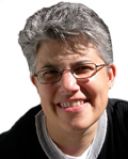Friends
When a Loved One is a Survivor of Child Abuse: Part Two
Five important ways my friends and family helped me.
Posted August 9, 2011
Last week I described some of the ways that people helped me talk about what had happened to me as a child and by talking about it, begin the healing process. These people weren't clinicians, they just wanted to help me: people like my husband, friends and co-workers.
As I mentioned last week I'm hoping you will think about these ideas, share them with the person in your life who has survived violence and ask him or her what might you do to help. Consider this a starting point to your discussion--not an ending point.
Last week I made two suggestions:
1. Listen
2. Believe
Today we continue with:
3. Ask questions to better understand
When I share my experience of abuse with friends, it's awkward if what follows is either an uncomfortable silence or no recognition of knowing more about me. Instead, when friends ask me questions, I feel so much better about having disclosed painful memories. Their attentiveness makes me feel that they are comfortable with me and want to get to know me better.
Recently, while writing a book about my experience with dissociative identity disorder (DID), I asked two friends to read the manuscript and let me know what they thought. After she read the draft, one friend told me all the specific things she liked about the book. The other emailed me as she was reading, keeping me updated on what she found moving and told me that when she reached the end she cried. Later this same friend asked me, "Hey, What happened between when you got divorced and when you moved to Minnesota. What happened?" We both laughed, knowing there were a number of years there that the book's timeline skipped over several years of relationships. It felt great to have her ask me. I felt closer to her than I ever had because she wanted to know me better.
When people share their lives and experiences with us, especially tragic experiences, we are reluctant to "pry". Some people don't want to be asked questions and because of that, most of us don't ask at the risk of offending. Contrary to this popular practice, however, most of the people I have met around the country want to be asked questions. Me included. I want people to feel comfortable with my past, comfortable with who I am. People ask about the farm I live on and the bees we raise but rarely do they ask about how I do with all the changes in my life given my past abuse. Rarely do they ask Was the book hard to write? Did it bring everything back up again?
When people ask me questions that acknowledge the pain of my past, I am comforted by a desire to know me better and comforted by being heard and once again believed.
4. Be Transparent
If someone's story is hard for you to hear, let the person know. Be kind but direct. Saying something like, "I'm so sorry about what happened to you. I want to be able to listen and learn more about your experience, but I can't. It brings up painful feelings about my own past and I get scared or mad. I'm sorry I can't help you by listening. I care about you and can help by being with you, going with you to the store, etc."
A former teacher who I reached out to once told me that. At first her response hurt my feelings. But I was grateful to know that she wanted to help and to listen, and that her own experience just made it too hard. It wasn't my fault that she couldn't talk to me about my past.
Many other people have tried to help but ended up not being able to hear about what I had remembered. Many invited me to tell them but didn't know that my story would be so hard to hear. When they reached the point of not being able to hear anymore, a few got mad at me. I know they tried and just didn't expect it to be so hard. But getting mad at me because I had gone through so much hurt my feelings and fed into my fear of ‘being too much'.
5. Learn more about survivors of child sexual abuse, DID and rape
Early on in my recovery process, one of the things my husband did was to learn as much as he could about the healing process for adult survivors of child sexual abuse. He bought just about every self-help book he could find, as well as many memoirs, in order to better understand how he could help. He also joined a support group for allies of adult survivors. There he learned that most of the partners of these allies also had DID. I clearly remember him telling me about the support group, telling me that DID is common among child sexual abuse survivors and that it's an amazing way to cope. I was so relieved and immeasurably grateful to him for his efforts to learn more about what I had survived without relying solely on me to explain it all. His participation in the support group also gave him someplace to go to talk to other partners and allies and made me feel well loved and cared for.
In my next few posts, I'll introduce you to my upcoming book The Sum of My Parts: A Survivor's Story of Dissociative Identity Disorder. I'll post a number of excerpts for you to review before the book is released in October.


